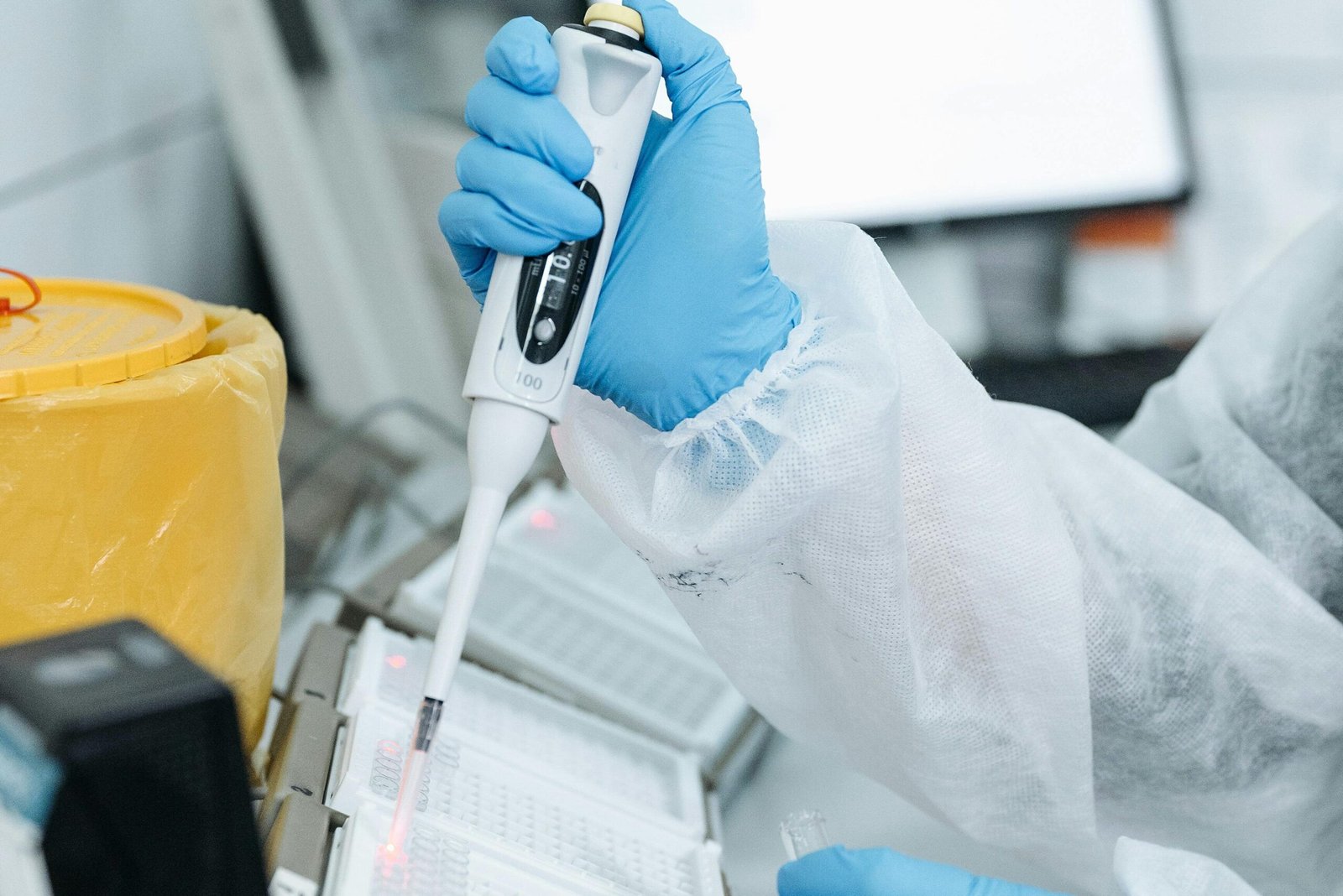The Promise of Superhuman Abilities

CRISPR technology has made it possible to edit genes with unprecedented precision, unlocking the potential to create superhuman traits. By altering specific genes responsible for physical and cognitive abilities, scientists believe they can enhance human performance in ways never before imagined. From increased strength and intelligence to improved memory and longevity, the possibilities seem limitless.
These advancements in genetic modification hold great promise for various sectors, including medicine, athletics, and even space exploration. However, with these benefits come concerns about fairness, accessibility, and the potential for creating a genetic elite. While the idea of enhancing human abilities is captivating, the ethical implications of such modifications remain a point of contention.
The Risk of Designer Babies
One of the most controversial aspects of CRISPR’s capabilities is its potential to create “designer babies.” By selecting and modifying specific genes before birth, parents could choose the traits they wish their children to have, such as eye color, intelligence, or physical strength.
While the technology offers the possibility of eliminating genetic diseases, it also opens the door to creating children who meet specific genetic ideals. The implications of such practices are profound, as they could lead to a society where genetic traits are commodified and where children are treated as products rather than individuals. The ethical debate around designer babies centers on questions of consent, fairness, and the potential for creating a genetically stratified society.
Ethical Concerns About Genetic Inequality
As CRISPR technology continues to advance, concerns about genetic inequality are growing. If genetic modifications become a tool only accessible to the wealthy, it could exacerbate existing social disparities. Those who can afford to enhance their genetic traits may have an advantage in education, employment, and overall quality of life.
The fear is that a genetic elite could emerge, creating a divide between those who have access to enhancements and those who do not. This could lead to greater societal divides and a future where genetic enhancements are no longer a choice but an expectation for those seeking to succeed. The issue of genetic inequality raises questions about the fairness of modifying human traits for personal gain.
The Unpredictable Long-Term Effects of Genetic Modification
While CRISPR technology allows for precise gene editing, scientists are still uncertain about the long-term effects of these genetic changes. Even small modifications to the human genome could have unintended consequences, potentially leading to genetic disorders, new diseases, or unforeseen health issues.
The long-term stability of genetic changes remains a major concern. As more people undergo genetic modifications, the cumulative effects could become apparent only after generations have passed. These unknowns highlight the importance of proceeding with caution as CRISPR technology evolves and becomes more accessible.
The Debate Over Human Enhancement and Its Impact on Society
CRISPR’s ability to create superhuman traits raises profound questions about the future of humanity. If we are able to enhance our physical and cognitive abilities, what does it mean to be human? Can we retain our humanity if we can alter our very nature?
Ethicists argue that human enhancement could disrupt the natural course of evolution and alter the essence of what it means to be human. The idea of creating “superhumans” could challenge our concepts of fairness, merit, and human dignity. As genetic modifications become more common, society will need to address these complex questions to ensure that we are not tampering with our fundamental nature.
Potential for Genetic Enhancements in Sports

One area where CRISPR could have a profound impact is in the world of sports. With the ability to enhance strength, speed, and endurance, CRISPR may give athletes an unfair advantage, leading to a future where only genetically enhanced individuals can compete at the highest levels.
The idea of genetically modifying athletes raises serious concerns about fairness and integrity in sports. Many argue that this type of enhancement would undermine the principles of fair competition, where athletes rely on their natural abilities and hard work. Others worry that such enhancements could lead to health complications or long-term risks for athletes whose bodies are modified to perform at extraordinary levels.
The Challenge of Regulating CRISPR-Based Enhancements
As CRISPR technology continues to evolve, governments and regulatory bodies will face significant challenges in ensuring that genetic modifications are safely and ethically implemented. The line between acceptable medical treatment and enhancement will become increasingly difficult to define, and there may be pressure to approve genetic modifications for non-medical purposes.
Regulating CRISPR and other gene-editing technologies is essential to prevent misuse, but it will require international cooperation to establish standards. Different countries may take different approaches, creating a patchwork of regulations that could lead to inequalities and unintended consequences. Furthermore, there is a concern that genetic modifications could be used for non-medical purposes, such as enhancing physical appearance or intellectual capabilities, which raises further ethical issues.
The Dangers of Editing Human DNA for Non-Medical Reasons
While genetic modifications have the potential to cure genetic diseases, using CRISPR for non-medical reasons, such as enhancing intelligence or creating designer babies, carries significant risks. Altering human DNA for superficial traits could lead to unforeseen consequences that could be harmful to individuals and society as a whole.
The desire to “improve” human beings through genetic editing could lead to a world where genetic modifications are seen as necessary for success in various aspects of life, such as education and career opportunities. This could create an arms race where only those who can afford genetic enhancements would have access to the best opportunities, leaving those without enhancements at a disadvantage.
Ethical Concerns About “Playing God” with Human Genetics

The concept of altering human DNA to create superhuman traits raises deep ethical questions about the role of science and technology in shaping humanity. Critics argue that genetically enhancing humans is a form of “playing God,” where scientists are manipulating the very essence of human life for personal or societal gain.
These ethical concerns are compounded by the possibility of unintended consequences. Even if scientists can create superhuman traits, they cannot predict how these changes will affect individuals or society in the long run. The ability to alter human genetics raises fundamental questions about control, responsibility, and the potential to overstep ethical boundaries.
The Role of Public Opinion in Shaping CRISPR Policy
As CRISPR technology advances, it will be crucial for public opinion to play a significant role in shaping policies and regulations around genetic enhancements. Society must grapple with the ethical implications of gene editing and decide where to draw the line between medical necessity and enhancement.
The debate surrounding CRISPR and human genetic modification will require input from ethicists, scientists, policymakers, and the public. Public awareness and understanding of the technology will be key in ensuring that genetic enhancements are implemented responsibly and that the risks are carefully managed. As CRISPR continues to evolve, society will need to find a balance between innovation and caution.
The Potential for Genetic Inequality
One of the biggest concerns surrounding the use of CRISPR technology for genetic enhancements is the possibility of creating a new class of genetically superior individuals. As genetic modifications become more advanced and accessible, it’s likely that only the wealthiest people will be able to afford them, leading to a society where genetic inequality exacerbates existing social disparities.
Such inequality could result in a world where those who can afford enhancements gain access to better healthcare, education, and employment opportunities, while those who cannot afford these enhancements may be left behind. This divide could create an even greater gap between the rich and the poor, both in terms of physical capabilities and opportunities for success in life.
The Impact on Human Evolution
The introduction of CRISPR-based genetic enhancements could have profound effects on the future of human evolution. If humans begin to modify their genes intentionally, they may set off a chain reaction that accelerates evolutionary changes, both beneficial and harmful.
These artificial changes to the human genome could result in a future population that differs significantly from the natural course of human evolution. Over generations, these enhancements might become more pronounced, potentially leading to unintended consequences for human health and survival. Evolution may no longer be a slow, natural process, but one that is rapidly shaped by human intervention, with all the risks that entails.
The Need for Global Ethical Standards in Gene Editing
As CRISPR technology becomes more widely available, it’s clear that international collaboration and the establishment of global ethical standards will be necessary to manage its use. Without universal guidelines, different countries could adopt different approaches to genetic enhancement, leading to inconsistency and potential ethical conflicts.
International cooperation is essential to prevent the misuse of CRISPR and ensure that genetic enhancements are used responsibly. Global ethical standards could help regulate which genetic modifications are acceptable, what procedures should be followed, and how to ensure that these technologies do not exacerbate social inequalities. Without such cooperation, the risks of genetic manipulation could outweigh the benefits, leading to unforeseen consequences for humanity.
